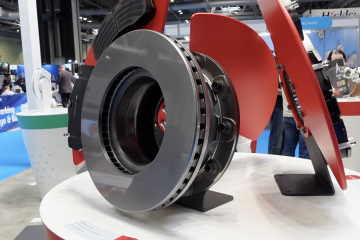Diesel sales in the new-car market have dropped substantially in recent years, but does that mean garages do not need to consider the technology any more? Auto Repair Focus Editor Phil Curry explores the current state of the diesel market, and the opportunities it presents.
Since the Dieselgate scandal of 2015, registrations of new models powered by the fuel have collapsed. Increased scrutiny, media demonisation and new regulations have led to the powertrain being seen as highly unclean.
Watch the latest Auto Repair Focus feature: Is diesel really dead?, below, or on our YouTube channel, where you can subscribe to receive free alerts for all upcoming multimedia content.
From around 1.2 million new diesel cars joining UK roads in 2014, last year, just over 120,000 were registered, according to data from the SMMT. This is a decline of 907.5% in a 10-year period. Therefore, it could be assumed that the automotive market no-longer has a place for diesel.
But to look at the registration figures alone does not tell the entire story. This is where the aftermarket must take note, because while new models may not be joining the UK fleet, the car parc currently features millions of cars powered by the fuel.
Parc is important
The latest motorparc figures released by the SMMT cover the full year of 2023. At this time, a total of 12,136,247 diesel passenger cars were still active on UK roads, according to Auto Repair Focus calculations. This represented a 34% share of the circa 35.7 million car total.
It would be naïve to believe that the collapse in the new-car market has not affected the powertrain's overall total. However, the decline of the market has been more gradual. In 2019, the diesel parc held 39 % of the total, meaning a drop of five percentage points between then and 2023.
The total has dropped by 11.6% in that time, equating to around 1.6 million fewer diesel cars on UK roads. At that rate, it would take around 38 years for the parc to be wiped out completely, and that is without factoring in changes to new-car regulations in coming years, that may convince drivers to hold on to vehicles for even longer.
“The age of the car parc is likely to significantly increase over the next couple of years,” commented Luke Garratt, UK and Nordics Technical Services Manager at Delphi. “If we look at the reliability, miles per gallon and range of a 10-year-old diesel vehicle, they do not look out of place on the roads. They are generally reliable, you get around the same miles per gallon as you would in a modern model, and people are going to have less justification and reasoning to get rid of these vehicles at this point.
Diesel in the aftermarket
With this in mind, it is likely that more, rather than fewer, diesel cars will be entering independent workshops in the coming years.
Drivers of older vehicles tend to have few ties with dealerships, and will look to get their car serviced somewhere that is more cost effective. In addition, as carmakers reduce their diesel ranges, the interest in training around servicing these vehicles in franchised workshops may decline.
Diesel technology has become more complex since the introduction of the Euro 6 legislation. This imposed emissions control systems, including the diesel particulate filter (DPF) and selective catalytic reduction (SCR) systems.
As the car parc gets older, these components, as well as many others, will continue to age as well. This means more in-depth components will need replacing. Workshops are already seeing demand for diesel repairs rise, according to DENSO, and this is likely to continue in the coming years.
Therefore, while new diesel sales are dropping, this is more of an opportunity, rather than a threat, to the independent sector.
Training is vital
But in order to ensure that advantage of this opportunity is taken, garages and technicians cannot miss out on staying up-to-date with the technology themselves. While electric vehicle training is at the forefront of many minds, modern diesels can be complex.
“I served my time on diesel vehicles in the 1990s, and things have changed a lot,” commented Darren Darling, founder of The DPF Doctor. “Things were pretty simple back then, compared to a modern-day models, and we cannot have this outlook that we are fully qualified.
“We are always learning, having to pick up new skills. Some PSA-based vehicles are running AdBlue, with an SCR and DPF additive systems. There needs to be a basic understanding of the technology to make sure that diesels are not as unreliable as some people think.
“For example, you have got DPF, you've got SCR, you've got charge coolers, you've got two EGR valves, exhaust flaps, there's a lot of stuff going on and people don't really understand how the system works, so upskilling and knowing what you're servicing has never been so important.”
Therefore, the independent aftermarket has an opportunity but to take it, understanding of diesel is required. The technology is far from dead, and with help from workshops, it can survive even longer, for those customers who are keen to hold on to their cars.



